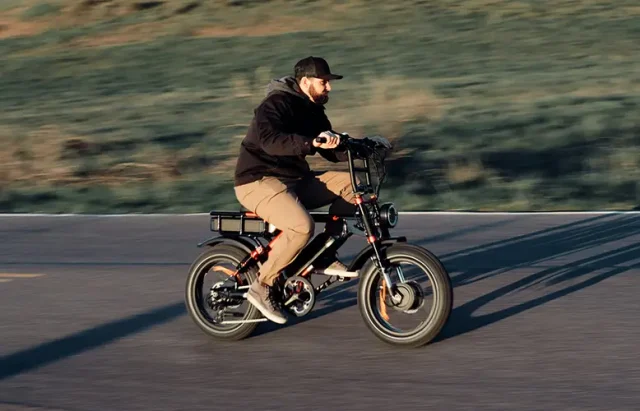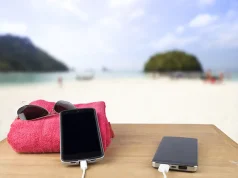
Electric bikes (e-bikes for short) are currently enjoying widespread popularity, helping people travel further for longer and typically serving as a viable alternative to cars for commuters. According to Statista, the revenue in the electric bike market in the United States is fancied to reach $1,784.00 million in 2024, which reflects an anticipated annual growth rate of 14.75% that spurs a projected market volume of $3,550.00 million by 2029. Not entirely surprising, China is the core region of the diffusion, and the rest of the world is included in the periphery area. The demand for e-bikes in North America began somewhat later.
Historically, electric bike use was primarily leisure-oriented, with people in their 60s and even older as pioneering adopters, yet recent trends indicate a demographic shift in adoption. More precisely, Millennials and Gen Z are choosing e-bikes as a convenient and fun mode of transportation due to environmental awareness and the desire for a healthier lifestyle. The term “electric bike” refers to bicycles that have a small electric motor and rechargeable batteries to supplement the power provided by the rider. Electric bikes use batteries with different chemistries, including lead-acid, nickel metal hydride, and lithium-ion, to store power for supplement pedaling.
Cost Is A Major Consideration In The Selection Of An Electric Bike
Electric bikes come in all shapes and sizes, so give thought to how you’ll use yours and what kind of bike will be most comfortable and effective for your experience level. Bicycles (pedal-assist or throttle-controlled) fall into different categories, namely city and casual, sport, mountain bikes, adventure bikes/gravel bikes, cyclocross, and specialty bikes. If you have the nerve or commitment to set off on a trip, you need a hard-working bike that’s trouble-free and enjoyable to ride to the other side of the earth. Acquiring and maintaining an e-bike is more expensive than owning a traditional bicycle, yet the operating costs are minimal.
The average price for an electric commuter bike is between $2000 and $3000, whereas the most affordable electric cargo bike costs $1,600, with most inventory sitting in the $2,500 – $3,500 range. If you live in a small apartment or are a student on a tight budget, a folding electric bike is highly practical, addressing the concerns of limited storage space. The average price is $2,500. The upfront investment is considerable, but it’s possible to find a high-quality, budget-friendly electric bike if you know where to look. Nevertheless, replacement batteries aren’t cheap as they’re built to last thousands of kilometers, with prices averaging about $500 – $1000.
A Few Key Things To Keep Whether Your Budget Is Large Or Small
You can buy an electric bike without breaking the bank, so make sure you’re not spending more than you have to. Keep these tips close by to use as a checklist, and you can’t go far wrong.
Spot A Good Deal
You have a guarantee you’re buying a good quality electric bike from Upway, the biggest marketplace for reconditioned e-bikes that consistently delivers reliable and efficient solutions. For those who want to own, Upway provides incentives to make electric bikes more affordable to purchase, namely products that cost 60% (or less) than new models and a one-year warranty on the battery, motor, and electronics. There’s no better time than now to check out the Upway offers. If you already like bikes and want a boost on the way home, you’ll be happy to learn that Upway stocks a wide range of electric bikes from leading brands under $1,500.
Purchase A Used Electric Bike
As the name clearly suggests, a used e-bike has been previously owned and ridden. You can come across a bargain, yet bear in mind that it’s a good deal only if it meets certain criteria, such as meeting your needs or being the right size. Much like cars, electric bikes lose their value pretty fast, meaning you can find bicycles that are a couple of months old for a fraction of the cost of buying new. Buying used doesn’t mean you must sacrifice on condition because most owners take extremely good care of their bikes. Above all, by purchasing a used electric bike, you can help reduce the demand for new ones, which in turn reduces greenhouse gas emissions in the cycling industry.
Buy In Installments
In case you didn’t know, you can spread the cost of your purchase over multiple payments. the terms and conditions are based on the bike’s price, your selected schedule, and your credit score, amongst others. Each payment is an equal portion of the overall cost of the electric bike made at regular intervals. Buy now, pay later have become a popular alternative to credit cards, and many companies do a soft credit check. Which means it won’t impact your credit score. No interest is typically charged for the repayment plan, but it’s up to the provider.
Concluding Thoughts
During purchasing decisions, cost savings play an important role as far as electric bike adoption is concerned. Several factors affect the cost of e-bikes, such as market demand, the establishment and standing of the brand, past performance and quality, and current trends, to name a few. The prices are in the middle to upper price segment, and features vary depending on the model and price. The good news is that you can take a ride without breaking the bank, so check out second-hand bikes to get the most bang for your buck in the long run.
Buy from a reputable marketplace to have assurance that the bike has been checked by a qualified professional and, most importantly, is safe; if you have an issue with it, you can give it back. Electric bikes fall into three categories that regulate where they can and can’t be ridden:
- Class I e-bikes: You don’t need a driver’s license to ride one.
- Class II e-bikes: The bike has a throttle, so you don’t have to pedal (if you don’t want to).
- Class III e-bikes: You need a helmet. Access is denied on some bike paths.
So, what’s it going to be?





